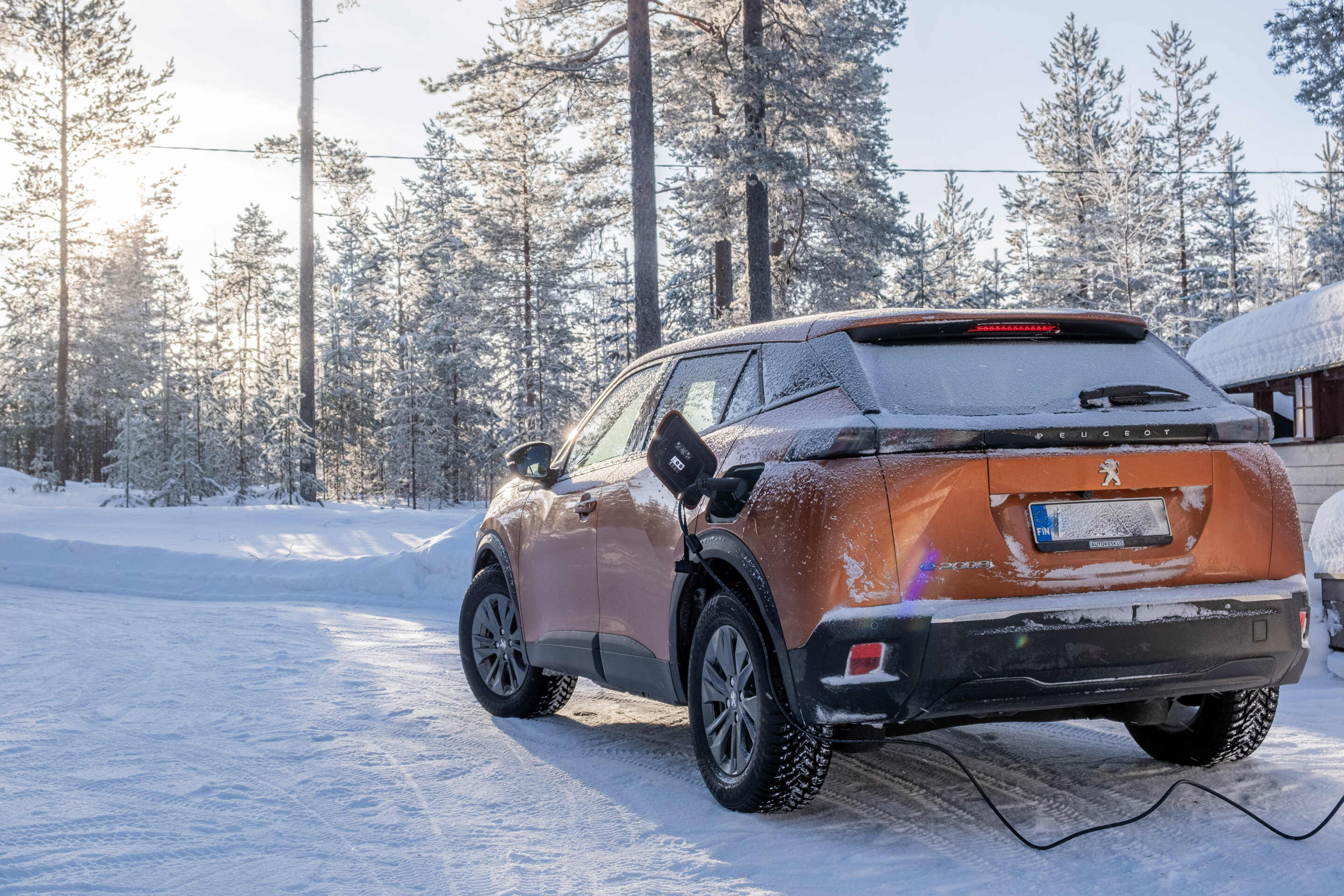Maybe EVs are not a comprehensive climate solution??
Isn’t this kind of obvious? But it has nothing to do with EVs themselves. If we count it like this, iphone owners should also have a bigger footprint. I don’t think anybody is claiming EVs would eliminate all issues.
It’s obvious for everyone with basic logic skills.
But that doesn’t mean we can’t try and twist the fact for anti-EV propaganda. Because it’s really, really, really important we keep burning oil… if you are someone selling oil and have the money to spread bullshit for personal gains that is.
I agree with you, but I also hate EVs. Mostly because I think public transport is superior. But I still support it as a driving alternative. It’s just the world’s biggest half-measure.
This is where I stand. EVs are not necessarily bad, but they are a bad solution to transportation emissions when compared to alternatives. It isn’t enough to just convert all cars to EVs, we should still be building more walkable places and expanding transit networks.
I guess in the ideal world wealthier people should actually emit less as they could use greener but more expensive services
They also live longer and have higher levels of education.
Hank’s razor: “Whatever can be explained by socioeconomic factors, most likely is explained by socioeconomic factors”.
So their carbon footprint is unrelated to their car choice.
Fuck Carpitalism
And then charge it for that service.
That’s it, there are still poor people and socialism.
That doesn’t really seem to be a particularly useful study. You could probably find the exact same thing by selecting for owners of very expensive bicycles, but you would be proving exactly the same thing (which is nothing at all).
A more reasonable approach would be to split into cohorts of different levels of wealth and then compare internally between those cohorts, to see the difference in emissions of an EV owner/transit rider/biker/ICE owner is.
My gut feeling says that we’d find them ranked on the following order, from lowest emissions to highest:
- Biker
- Transit rider
- EV owner
- ICE owner
It would be interesting to check whether that gut feeling holds in real life, and particularly how much the groups differ on a per-cohort basis.
Are people wealthier because they own an EV, or are people who own an EV generally wealthier?
”The researchers found that people who purchase EVs tend to be wealthier than average”
In other words: OP is barking up the wrong tree as the EVs have little to no correlation with the non-EV-related carbon footprint of the EV owners.
Unless, of course, if OP is implying that EVs are too hard to acquire for the less wealthy consumers, though I somehow doubt that.
There’s correlation, but it’s not causal. The reason is that EVs are just more expensive (and are really only a practical option if you have your own garage as well), so wealthier people tend to buy them.
Yes. The owners are already wealthier when they buy an EV, and thus they already have the higher carbon footprint. This is not caused by the EV.
But an EV has a significantly higher carbon footprint than public transport, though.
Actually, that is the case. New EVs tend to be pretty expensive and not very affordable for the average person. The second hand EV market is just getting started. Small, affordable EVs are beginning to emerge but it will be a few years until they make an impact. So right now the average EV buyer will definitely be more wealthy than the average ICE car buyer.
While I think it’s good to raise awareness about carbon footprints, the fact is that carbon footprints of individuals, regardless of their socioeconomic status, pales in comparison to that of corporations. Individuals should be last on the list for reducing carbon footprints when corporations and government inefficiency produces more damage than whole populations of people combined.
Corporations aren’t causing a mass extinction just for shits and giggles, they’re doing it because billions of individuals buy their products and services. If the billions of individuals stopped buying it, the corporations would stop making/offering it. The rich cause more harm in the short term, but even poor people having more kids despite the biosphere not being able to sustainably support even a fraction of the current population, are more omnicidal in the longer term.
You’re right that bad consumer choices like choosing fast fashion or inefficient vehicles result in more harm than good. Though there are places where people don’t have a choice, like in what farms do to produce their meats and produce, and how it’s transported.
What energy sources we use and agriculture are bigger contributors to emissions than consumer goods. Even if people stop buying, manufacturing will happen for war and construction. Reducing emissions is a systems problem, it’s not about telling people to “be more green”. That’s a bandaid for a gushing wound.
I don’t think we should blame people if they buy an ICE car, but we should blame them if they don’t vote for progressive politicians who mandate better industry practices and invest in more green energy.
Here’s some data https://ourworldindata.org/emissions-by-sector
produce their meats
Billions of individuals choose to eat animal products giving money to factory farmers and industrial fishing companies - 2 industries that cause more pain and suffering than all other atrocities ever committed in all of history, combined (1-3 trillion fish are tortured to death every year by fishing companies, and at least hundreds of billions of animals are enslaved in torturous conditions in factory-farms every year). I live in a 3rd world country, and went vegan almost 20 years ago. For the people causing most harm: those in rich countries, it’s easier to be vegan.
For those who can’t grow their own plant-food, there’s still this: https://ourworldindata.org/grapher/land-use-kcal-poore
Reducing emissions is a systems problem, it’s not about telling people to “be more green”
It’s both: “No single raindrop believes it is to blame for the flood.”
no single raindrop is to blame for the flood, and poore-nemecek is scientific malpractice. I wouldn’t trust that paper to tell me the co2e of co2
Do corporations produce those GHGs for fun? For their shareholders? Are the coal bonfires at company getaways? Do they build castles for shareholder using ruminant bones as a construction material? Do they use oil to build deadly oil swamps for obscure reasons? Or do they embed and package those GHG emissions to sell something to some buyer?
I’ll say it again and again and again.
As long EVs can’t capture the used car market, their impact in climate is non existent.
Even worse, what do people think will happen to all those EVs in 10 years? There are no hand downs of cars with used up batteries and people that have to resort to buying 10+ year old cars don’t have the spare change to get the battery replaced.
What do you think the average 10 year old car has done to that point? Battery degradation is hugely overrated and stories are based on tech already left behind.
The actual problem for the used car market is the opposite: EVs live much longer than traditional cars and thus don’t lose their worth that rapidly, while on the other hand new cars still see a fast development cycle while also getting cheaper.
So no, it’s not a problem of used EVs per se and that their expensive batteries are allegedly dying. It’s the fact that a new EV just a couple of years later is ahead 1-2 generations and also cheaper.
My car is 10 years old. It has one of the worst Ford engines ever made and it still drives flawlessly, everything is cheap to repair and maintain. It has a radio and climate control nothing more. It’s also fairly fuel efficient.
Nothing new and improved ever gets cheaper over time, that’s not how it works. Manufacturers thread the waters with increased prices and if people are willing to pay that price it becomes the new baseline. That’s why flagship smart phones went from $400 to $600 to $800 to $1,000 and now $1,200. That’s why small lower class cars went from $15,000 to $22,000 new. That’s why the new PS5 pro cost $700, etc.
Ideally the price curve of a product starts inflated, drops rapidly and then plateaus at the actual free market value of the product. EVs lasting longer than combustion engine cars (which we have zero empirical evidence by the way) and therefore staying at an inflated price point for longer, benefits nobody but the manufacturer.
I would love to buy a 7 year old EV for $8000 used and have it be my daily car for another 3-4 years. But right now something like that doesn’t exist, at least not in the form of a normal sized hatchback.
And rapid development is horrible for maintainability. With billions of possible part combinations even within a single manufacturers car class it becomes impossible for a professional mechanic to repair yet alone diagnose a problem without OEM tools. People have to finally step back from their desire for individualism and accept that for the greater good a unified technical design composition is superior. At least car manufacturers caught up on that, because nowadays cars come with a bunch of features pre-installed but not unlocked in the software, that way at least from a technical standpoint the cars are equal to one another and become simpler to maintain. But the customer still has to foot the bill for all features, driving the price up even more.
EVs have chosen an absolute shit time to emerge. If this change would have happenend in the early 2000s when the car market was relatively stable design wise we wouldn’t have any of those problems. Combustion and electric engines would have been able to coexist like manuals and automatics, or diesel and petrol.
Whole lotta citations needed. Here’s mine:
https://nymag.com/intelligencer/article/who-wants-to-buy-30-000-used-teslas-from-hertz.html
The high-voltage battery pack is damaged and could cause extreme safety concerns,” a Tesla technician texted him. Because the hole was “exterior damage,” it wasn’t covered by the warranty, which meant a $13,078.58 repair bill.
https://www.teslaownersonline.com/threads/tesla-from-hertz.31723/
Batteries losing more than 20-25% of their capacity in 150.000km had a defect in production already. You can find similiar numbers in any OEM’s warranty. So a non-defective battery will provide at least 80% of its capacity at 150.000km. The average car manages about 250.000km over their life-time of about 15 years (reference numbers from the US, so the most pessimistic view as barely anyone else in the world is matching those distances).
You are not completely wrong. Used batteries will be a problem… somewhere far down the road because electric vehicles are expected to easily manage 800.000km or more (less moving/wear parts).
But we are not there yet. The whole EV market isn’t old enough to have produced these long-lived vehicles and we are back at my original point. Today it’s not about battery degradation but about EVs not getting old fast enough to already have established a robust used market. In fact the first big batch of EVs on the used market is often not expected for another 2 years (see here for example, and that’s again rather new vehicles because of a loophole for leased cars in the EU).
In short: There isn’t a huge used EV market yet and (more importantly) the demand is stifled by battery degradation fairy tales not relevant (EVs old enough for this basically don’t exist yet) and political mismanagement subsidising new EVs.
You need to keep saying it so all these morons will finally understand that EVs suck for everyone but the manufacturers. They suck long term, they suck on the used market, they suck for huge swaths of humanity that don’t own homes.
Tesla won’t even let you buy out the vehicle at the end of the lease.
Tesla isn’t the only company who makes EVs.
I personally bought both of my ev’s used. And yes, one is older than 10 years and still running great, I wouldn’t hesitate to replace it with one the exact same age.
Parts are out there, and it’s getting easier and easier to find refurbished and replacement packs. (Pretty much the only thing that “wears out” in an EV)
EVs are really cheap in China. They could be cheap everywhere but capitalism and politics
Maybe EV’s shouldn’t be packed with all the bloated features and unnecessary software. We could eliminate internal combustion engine personal vehicles if the prices were more affordable for the end consumer and our governments took a harder stance on cutting emissions.
I’d much rather a small, simple, electric sedan or hatchback with minimal features over the massive electric SUVs riddled with touch screens, wifi, self driving features, and corporate listening devices.
The Chinese are making great, very affordable EVs that are $9k brand new. But they are illegal in the US because American billionaires can’t profit from them
In other news: water is wet and trillionaires shouldn’t exist.
trillionaires
why such a high ceiling?
Conclusion: To increase the adoption rate of EVs, we must make the vast majority of people wealthy.
Incorrect, but also totally fine by me. 😄
Makes sense. I don’t know any EV owners that aren’t really well off financially.









